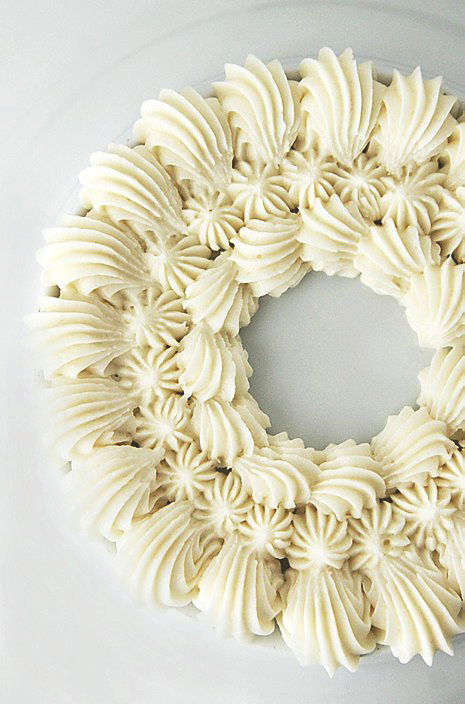My mother asks for the spreader and, with strong arms, moves the icing over the crumbs like a foamy sea tide caught in time over the surf, stilled. The crisp white waves of the icing emulate this flowing. They hide the jagged marks and chunks I've carved.
*
*
 The Wal-mart cake supplies hide behind the party favors and greeting cards. I'm aching, so it's the first place a stop in the store. I go over the tools in my mind. The piping paper. The mouths of the icing tips, ridged in different designs. They do not have the the flower nail my mother blooms roses on. Its top is smooth and round like a half dollar; the bottom is a thick pin. She grows them from the inside, overlaying pink cream petals. She scrapes them, gently, from the half dollar and places them on the cake.
The Wal-mart cake supplies hide behind the party favors and greeting cards. I'm aching, so it's the first place a stop in the store. I go over the tools in my mind. The piping paper. The mouths of the icing tips, ridged in different designs. They do not have the the flower nail my mother blooms roses on. Its top is smooth and round like a half dollar; the bottom is a thick pin. She grows them from the inside, overlaying pink cream petals. She scrapes them, gently, from the half dollar and places them on the cake.She acts like God did in Eden, churning up nature's matter, pure and soft, and piping the garden out as icing. He laid buttercream in the fields: sweet and plump, the blooms of spring.
